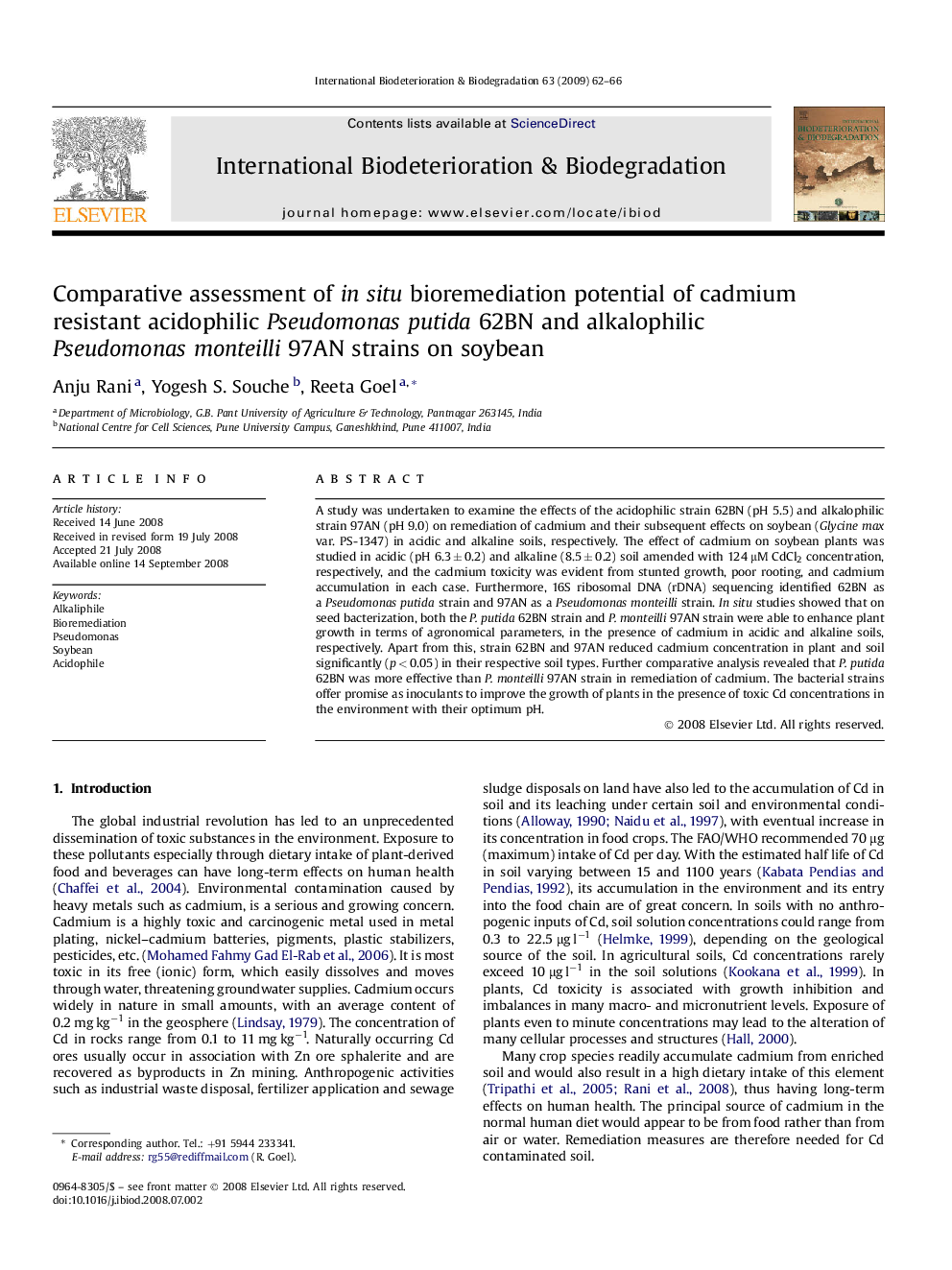| Article ID | Journal | Published Year | Pages | File Type |
|---|---|---|---|---|
| 4365531 | International Biodeterioration & Biodegradation | 2009 | 5 Pages |
A study was undertaken to examine the effects of the acidophilic strain 62BN (pH 5.5) and alkalophilic strain 97AN (pH 9.0) on remediation of cadmium and their subsequent effects on soybean (Glycine max var. PS-1347) in acidic and alkaline soils, respectively. The effect of cadmium on soybean plants was studied in acidic (pH 6.3 ± 0.2) and alkaline (8.5 ± 0.2) soil amended with 124 μM CdCl2 concentration, respectively, and the cadmium toxicity was evident from stunted growth, poor rooting, and cadmium accumulation in each case. Furthermore, 16S ribosomal DNA (rDNA) sequencing identified 62BN as a Pseudomonas putida strain and 97AN as a Pseudomonas monteilli strain. In situ studies showed that on seed bacterization, both the P. putida 62BN strain and P. monteilli 97AN strain were able to enhance plant growth in terms of agronomical parameters, in the presence of cadmium in acidic and alkaline soils, respectively. Apart from this, strain 62BN and 97AN reduced cadmium concentration in plant and soil significantly (p < 0.05) in their respective soil types. Further comparative analysis revealed that P. putida 62BN was more effective than P. monteilli 97AN strain in remediation of cadmium. The bacterial strains offer promise as inoculants to improve the growth of plants in the presence of toxic Cd concentrations in the environment with their optimum pH.
